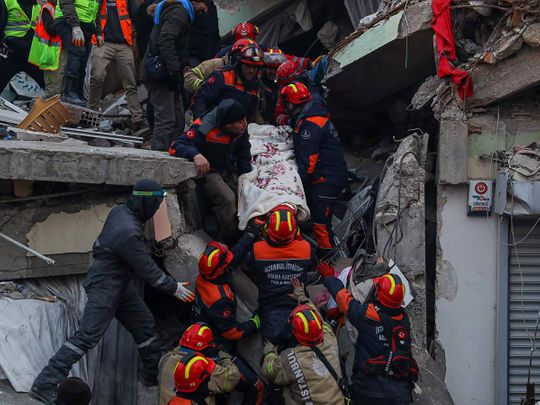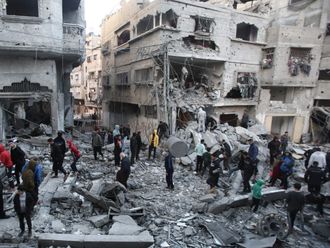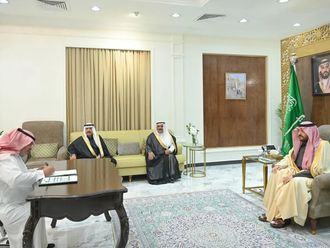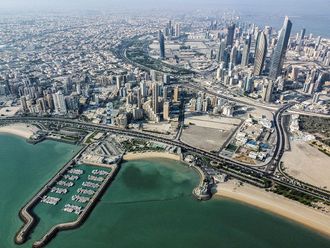
KAHRAMANMARAS: Among the rubble, hundreds of thousands of homeless people face cold and hunger as authorities in Turkey and Syria tackle the dire humanitarian disaster caused by the earthquake that has left more than 35,000 dead.
As hopes of finding people alive under the debris fade more than a week after the quake struck, the focus has switched to providing food and shelter to the vast numbers of survivors.
According to the Turkish government, about 1.2 million people have been housed in student residences, more than 206,000 tents have been erected and 400,000 victims evacuated from the devastated areas.
The disaster has also exacted a psychological toll. In a tent city near the quake's epicentre in Kahramanmaras, father-of-four Serkan Tatoglu, 41, described how his family was haunted by their losses as they waited out the aftershocks.
"The youngest, traumatised by the aftershocks, keeps asking: 'Dad, are we going to die?'" Tatoglu said of his six-year-old.
Turkey's Vice President Fuat Oktay said 574 children pulled from collapsed buildings were found without any surviving parents. Only 76 had been returned to other family members.
One voluntary psychologist working in a children's support centre in hard-hit Hatay province said numerous parents were frantically looking for missing kids.
"We receive a barrage of calls about missing children," Hatice Goz said by phone.
"But if the child still cannot speak, the family is unable to find them."
'Millions need to be fed'
In the devastated Turkish city of Antakya, clean-up teams have been shifting rubble and putting up basic toilets as the telephone network started to come back in parts of the town, an AFP reporter said.
The city was patrolled by police and soldiers deployed to prevent looting following several incidents over the weekend.
"Send any stuff you can because there are millions of people here and they all need to be fed," Turkish Interior Minister Suleyman Soylu appealed late Sunday.
In Antakya and Kahramanmaras, food and other aid supplies were flowing in, AFP teams reported.
The economic cost of the disaster could be as much as $84.1 billion, with nearly $71 billion of that for housing, Turkish employers' association Turkonfed said in a report Monday. Neighbouring Syria, already racked by 12 years of civil war, is of particular concern.
The United Nations held an emergency meeting Monday on how to boost aid to rebel-held areas, as anger grows over a sluggish international response to the pariah nation.
Syrian President Bashar al-Assad, isolated and subject to Western sanctions, called for international assistance to help rebuild infrastructure in the country, where the UN estimates more than five million have been left homeless.
UN Secretary-General Antonio Guterres said Assad has agreed to open two more border crossings from Turkey to northwest Syria to allow in aid.
Before the earthquake struck, almost all of the crucial humanitarian aid for the more than four million people living in rebel-controlled areas of northwest Syria was being delivered through just one crossing.
"Opening these crossing points - along with facilitating humanitarian access, accelerating visa approvals and easing travel between hubs - will allow more aid to go in, faster," Guterres said.
Aid for Syria
More than a week after the 7.8-magnitude quake toppled buildings across the region, stories continue to emerge of people found alive in the rubble.
But experts warned that hopes of finding more survivors were dimming.
In Turkey on Monday, siblings Harun, eight, and Eyuphan, 15, were rescued 181 hours after the fifth-deadliest earthquake of the 21st century, the Anadolu news agency reported. A Mexican military rescue dog named Proteo died searching for survivors under the rubble in Turkey.
"You accomplished your mission... thank you for your heroic work," the Mexican military tweeted Monday.
The confirmed death toll stands at 35,331 as officials and medics said 31,643 people had died in Turkey and at least 3,688 in Syria. The toll has barely changed in Syria for several days and is expected to rise. Trucks carrying shelter kits crossed from Turkey into northwest Syria on Monday.
However, UN officials said more was needed for the millions whose homes were destroyed.
On Monday, Sudan sent a flight carrying 30 tonnes of aid to Syria.
According to Syrian Transport Ministry official Suleiman Khalil, 62 planes carrying aid have so far landed in Syria and more are expected in the coming days, particularly from Saudi Arabia.












